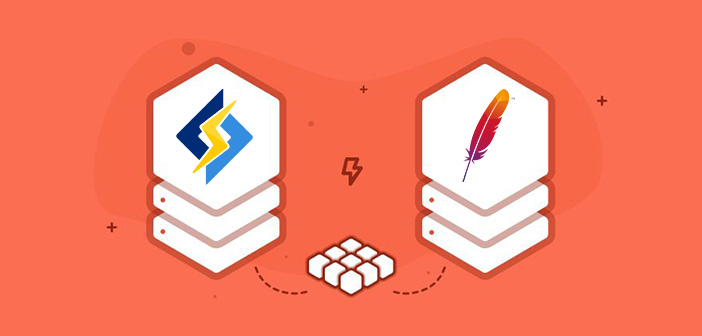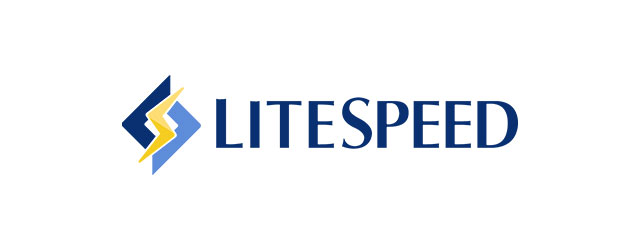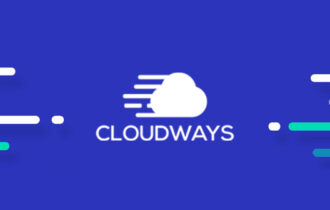Apache vs LiteSpeed: Servers Comparison for WordPress

Apache and LiteSpeed are both web servers, but they have some key differences. Apache is open-source and widely used, while LiteSpeed is a commercial product. Apache is considered to be more flexible and configurable, but LiteSpeed is known for its high performance and low resource usage. In terms of compatibility with WordPress, both servers are compatible, but LiteSpeed may offer better performance and security features. Ultimately, the choice between Apache and LiteSpeed will depend on your specific needs and the resources available to you.
What is Apache HTTP Server Project?

The Apache HTTP Server Project is an open-source web server software project that is developed and maintained by the Apache Software Foundation. The Apache HTTP Server commonly referred to as Apache, is the most widely-used web server software in the world. It is known for its stability, flexibility, and configurability. It supports a wide range of features, including support for multiple programming languages, support for server-side scripting, and support for various authentication methods. Apache is also highly extensible, with a large number of modules available to add additional functionality to the server.
What is LiteSpeed Web Server?

LiteSpeed Web Server (LSWS) is a web server software developed by LiteSpeed Technologies. It is designed to be fast, secure, and efficient. LSWS is compatible with Apache’s .htaccess files and mod_rewrite rules, making it easy to switch from Apache to LiteSpeed. It also supports all popular web scripting languages, such as PHP, Python, Ruby, and Perl. Additionally, LSWS includes a built-in caching system that can significantly improve the performance of your website. It also has a built-in web-based control panel that allows you to easily manage and configure your web server. LiteSpeed also offers an enterprise-level web server with additional features, such as load balancing and a more advanced caching system.
Apache Features and Performance
Apache is known for its stability, flexibility, and configurability. Some key features of Apache include:
- Multi-processing support: Apache supports several different multi-processing models, including the ability to run multiple worker processes simultaneously, which allows it to handle a large number of concurrent connections.
- Virtual Hosting: Allows you to host multiple websites on a single server, each with its own unique domain name and IP address.
- Modularity: Apache uses a modular design, with a core set of features and a wide variety of modules that can be added to extend its functionality.
- Security: Apache has a number of built-in security features, such as support for SSL and TLS, as well as modules for authentication and authorization.
- Support for multiple languages: Apache supports a wide range of programming languages, including PHP, Python, Ruby, and Perl.
- Performance: Apache’s performance varies depending on the configuration, however, Apache has the ability to handle a large number of concurrent connections but it may not be as efficient as LiteSpeed in terms of resource usage.
- Extensibility: Apache has a large number of modules available that can be added to extend the server’s functionality.
Overall, Apache is a solid and reliable web server that is widely used and supported. However, LiteSpeed has a performance edge over Apache, especially in terms of resource usage and handling concurrent connections.
Why LiteSpeed is Better
LiteSpeed Web Server (LSWS) is considered to be faster, more secure, and more efficient than Apache, due to the following reasons:
- Performance: LSWS is designed to be faster and more efficient than Apache, and is able to handle a higher number of concurrent connections with fewer resources. It includes a built-in caching system that can significantly improve the performance of your website.
- Security: LSWS has a number of security features built-in, such as DDoS protection and a Web Application Firewall (WAF) which can help protect your website from common attacks.
- Easy to use and manage: LSWS includes a built-in web-based control panel that allows you to easily manage and configure your web server.
- Compatible with Apache: LSWS is compatible with Apache’s .htaccess files and mod_rewrite rules, which makes it easy to switch from Apache to LiteSpeed.
- More Scalable: LSWS Enterprise edition provides more advanced features such as load balancing and a more advanced caching system which allows for more scalability.
- LiteSpeed is a commercial product: which means it provides support and maintenance from LiteSpeed Technologies and it also includes additional features that are not available in Apache.
It’s important to note that LiteSpeed is not a direct replacement for Apache and it may not be suitable for all use cases, but it does offer some advantages over Apache in terms of performance and security. It’s best to evaluate your specific needs and resources before making a decision.
Web Server Comparison: LiteSpeed vs Apache
When it comes to the comparison between LiteSpeed and Apache web servers, both have their own strengths and weaknesses.
Apache is an open-source web server that is widely used and supported, known for its stability, flexibility, and configurability. It is compatible with a wide range of programming languages and has a large number of modules available to extend its functionality.
On the other hand, LiteSpeed is a commercial web server that is designed to be faster, more secure, and more efficient than Apache. It has a built-in caching system, DDoS protection and a web application firewall that can help improve the performance and security of your website. It also includes a web-based control panel that makes it easy to manage and configure.
Ultimately, the choice between LiteSpeed and Apache will depend on your specific needs and the resources available to you. If you’re looking for a more efficient and secure web server, and have the resources to afford a commercial product, LiteSpeed might be a good choice. But if you prefer an open-source and configurable web server, Apache is a solid choice that is widely used and supported.
Step-by-step comparison of Apache and LiteSpeed
1. Installation: Both Apache and LiteSpeed can be easily installed on a variety of operating systems, such as Windows, macOS, and Linux. However, LiteSpeed is a commercial product, so you’ll need to purchase a license and download the software from the LiteSpeed website. Apache, on the other hand, is open-source, so it can be downloaded for free from the Apache website.
2. Configuration: Both Apache and LiteSpeed have a similar configuration process, but LiteSpeed includes a web-based control panel that makes it easier to manage and configure the server. Apache, on the other hand, requires manual editing of configuration files.
3. Performance: LiteSpeed is designed to be faster and more efficient than Apache, and is able to handle a higher number of concurrent connections with fewer resources. It also includes a built-in caching system that can significantly improve the performance of your website.
4. Security: LiteSpeed has a number of security features built-in, such as DDoS protection and a Web Application Firewall (WAF) which can help protect your website from common attacks. Apache also has a number of built-in security features, but LiteSpeed offers more advanced security features that can help protect your website.
5. Compatibility: Both Apache and LiteSpeed are compatible with a wide range of programming languages, but LiteSpeed is compatible with Apache’s .htaccess files and mod_rewrite rules, which makes it easy to switch from Apache to LiteSpeed.
6. Scalability: LiteSpeed Enterprise edition provides more advanced features such as load balancing and a more advanced caching system which allows for more scalability than Apache.
7. Support: Apache is an open-source project, so support is provided through a community of users and developers. LiteSpeed, on the other hand, is a commercial product, so support is provided by LiteSpeed Technologies.
For more in depth comparison you can also read: Apache vs NGINX.




